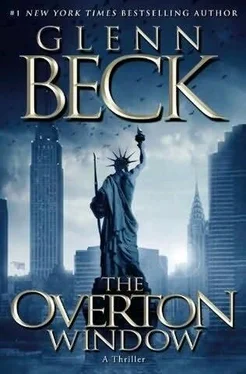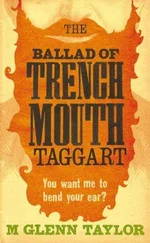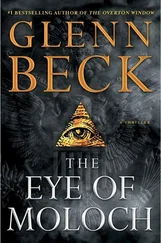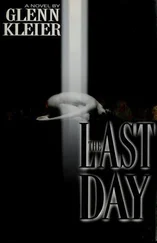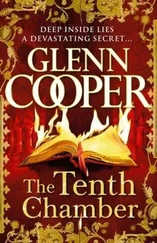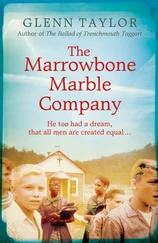“I hope I’m wrong,” she said. “I want to be wrong; you should know that. Now please just decide to forgive me, at least until we’re out of here again.”
He looked away, but after a time he nodded.
“Okay.”
There was only one way to warrant a blatant breach of business ethics such as this, and that was to attribute his actions to a higher cause. If Molly was right, then a cute but quirky mailroom temp had identified a grand, unified, liberty-crushing conspiracy that had been hatched in the conference room of a PR agency. The benefits of learning that would easily outweigh the consequences: forsaking his father’s trust and violating the ironclad, career-ending nondisclosure clause of his employment contract. After all, with the fate of the free world in the balance, the prospect of getting fired, disowned, and probably sued into debtor’s prison should be among the least of his worries.
If Molly was wrong-and no ifs about it, she was wrong-then he’d be vindicated, she’d be deeply apologetic and sworn to secrecy about this whole fiasco, and there might still be a chance to salvage what remained of the weekend.
A flimsy rationale, maybe, but for the moment it helped him avoid the more troubling thought that after all he’d seen in the last twenty-four hours, deep down he needed to know the truth every bit as much as she did.
The elevator eased to a stop and the doors opened.
The old man’s office was never dark. Night or day it was always the same: warmly lit and immaculately kept, smelling faintly of pipe smoke, black tea, and silver polish, furnished with all his fine, precious things. From the art on the walls and pedestals to the antiques and small collections of rarities interspersed among the bookshelves, everywhere you turned there was something priceless. For him it was less a place of business than an inner sanctum of quiet meditation and a shrine to the very real forms of happiness that money could actually buy.
Few employees ever had occasion to set foot in these rooms and see these sights, but Molly paused only at the sight of one thing.
“What is this?” she asked.
She was looking at a marble sculpture on a pedestal in the corner. Noah’s father had commissioned it years ago. The figure depicted was a strange amalgamation of two other works of art: the Statue of Liberty and the Colossus of Rhodes. Molly would have known that much by looking; what she’d meant to ask was, What does this mean?
“It’s the way my father looks at things… at people, I mean: societies. The law may serve some superficial purpose, but it only goes so far,” Noah said, touching the spear in the statue’s left hand. “At some point the law needs to be taken away and replaced with force. That’s what really gets things done. People ultimately want it that way; they’re like sheep, lost without a threat of force to guide them. That’s what it means.”
Molly silently took in the statue for a while longer, like she was memorizing it. After a few more seconds she drew in a deep breath, walked to the door, peeked around the corner to make sure the coast was clear, and then turned and motioned for Noah to follow.
“Let’s get this over with,” she said.
Weekend work was one of the many things his father frowned upon, which led nearly all of the up-and-coming employees to maintain second offices at home. This allowed them to put in the expected seventy-plus hours per week while appearing to comply with company policy. It also meant that, with luck, Noah and Molly would have the place to themselves for the duration of their espionage.
Down the central hall and adjacent to the conference room they keyed themselves into the locked AV booth, where the presentation files were stored. Molly stood by him as he found the coded folders on the computer, entered their passwords, and prepared the show to be launched from a remote controller at the podium inside.
When they entered the conference room the programmed lights had already dimmed and wide white screens were descending around the walls. Digital projectors hummed and glowed as they received their data, and soon the screens lit up with an introductory slide.
In the beginning he clicked through the content fairly rapidly; this was the section he’d already seen. He paused only when Molly asked him to stop while she absorbed the content of some particular display.
Without the benefit of a speaker to explain them, many of the slides and visuals were difficult to understand. Animated graphs illustrated various social and political trends, time lines ticked off progress toward unnamed goals, maps with highlighted regions expanded or contracted to show unidentified changes over months, years, or decades.
“Stop,” Molly said. “Go back one.”
They were deeper into the presentation now, past the point at which Noah had left the meeting, but nothing had seemed particularly shocking or frightening to him. He’d breezed right past the screen she’d asked to see again. It was an introductory agenda for the group of very important people who’d come to attend the final half of the meeting.
The heading was “Framework and Foundation: Toward a New Constitution.” No names accompanied the headings that followed, only the areas of government that each new attendee supposedly represented.
• Finance / Treasury / Fed/Wall Street / Corporate Axis
• Energy / Environment / Social Services
• Labor / Transportation / Commerce / Regulatory Affairs
• Education / Media Management / Clergy / COINTELPRO
• FCC / Internet / Public Media Transition
• Control and Preservation of Critical Infrastructure
• Emergency Management / Rapid Response / Contingencies
• Law Enforcement / Homeland Security / USNORTHCOM / NORAD / STRATCOM / Contract Military / Allied Forces
• Continuity of Government
• Casus Belli: Reichstag / Susannah/Unit 131 / Gladio / Northwoods / EXIGENT
“Who was in this meeting, do you know?” Molly asked.
“The people I saw were mostly from some advance-planning division of the DHS; domestic war-gamers, like the international kind at the Pentagon. There’s a stack of tent cards here somewhere with their names. I don’t know about the ones who came later; I only had their phone numbers.”
“Do you still have that list?”
“No, I don’t. I was told to burn it, and that’s what I did.” He walked toward the screen and pointed to the last entry. “What does this term mean? My Latin’s a little rusty.”
She glanced up from her notes only for a moment. “Casus Belli. It means an incident that’s used to justify a war. Come on, let’s keep going.”
The slides thereafter made continual references to pages in some briefing document that must have been handed out to the meeting’s participants. Without those pages it seemed there was little use in continuing further.
“That’s it,” Noah said. “I don’t think there’s any more to see.”
“It’s not over yet. We’re not to the end.”
He held his thumb down on the advance button and the screens ticked by more and more rapidly. “I’m telling you, look at it, this is nothing but page numbers-”
The walls went black, leaving the room in almost total darkness.
One by one the screens faded in again, encircling the room with new content they hadn’t seen before. Each screen contained a linear diagram that was a trademark of the company’s strategic plans. These diagrams were used to show the firm’s clients a step-by-step layout of what to do, and how and when to do it.
The headings mirrored the disciplines of the attendees shown earlier: Finance, Energy, Labor, Education, Infrastructure, Media, Emergency Management, Law Enforcement, and Continuity of Government.
Читать дальше
